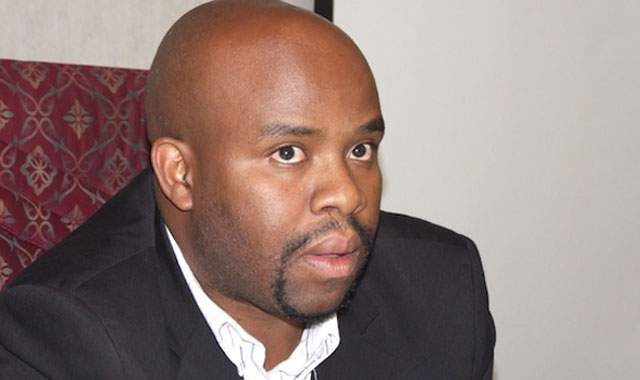 The department of telecommunications & postal services’s new director-general, Robert Nkuna, is going to have no time to ease gently into his new office in Hatfield, Pretoria. Indeed, he’s going to have to hit the ground running.
The department of telecommunications & postal services’s new director-general, Robert Nkuna, is going to have no time to ease gently into his new office in Hatfield, Pretoria. Indeed, he’s going to have to hit the ground running.
The former councillor at communications regulator Icasa and special adviser to former communications minister Yunus Carrim is tasked with putting the national integrated ICT policy white paper, developed by former acting DG Joe Mjwara, into effect.
The comprehensive document, which will upend the ICT sector, has many things going for it. It (finally) introduces guidelines for the rapid deployment of infrastructure, which will make it much easier for operators to build networks. And its proposals on net neutrality seem to be well thought through (even if they’re perhaps not needed yet). But, as many contributors to this website in recent weeks have pointed out, there are also fundamental problems with the document, which, if implemented, threaten to do enormous and unnecessary damage to the ICT sector.
I’m not going rehash the excellent contributions from people like Alison Gillwald of Research ICT Africa and Denis Smit from BMI-TechKnowledge — I encourage you to go and read (or re-read) their views on the subject. Instead, I’d like to use this space to propose a middle path, one that secures continued investment by the big mobile operators (which the white paper as it stands does not) while also encouraging greater competition and helping new entrants, including black companies, get into the industry.
The problem with the white paper is that it wants to throw the baby out with the bath water. Or, to use another hackneyed phrase, it wants to kill the goose that lays the golden eggs. And for what?
It is clear from reading the white paper, and from listening to government officials such as Mjwara and telecoms minister Siyabonga Cwele, that they want the status quo to change. Mjwara says as much in this piece he wrote for TechCentral, in which he says small and medium enterprises have been kept out of the industry.
And that means doing something about the “duopoly” of Vodacom and MTN, South Africa’s two most successful mobile operators. There’s a perception (perhaps it’s a correct one, I don’t know) that these two companies are too dominant; that their size and sway prevents new entrants from challenging them effectively.
The solution, in the white paper, is to allocate all future spectrum assignments for mobile (the so-called “high demand” spectrum) to a new wireless wholesale open-access network, or Woan, in which all industry players are invited to participate. This new entity would, in effect, have a monopoly over infrastructure deployment.
The policy document goes even further, raising the possibility of taking away already-assigned spectrum that companies like Vodacom, Telkom, MTN and Cell C have used to build their 2G, 3G and 4G networks. Talk is that this clause is going to be removed from the white paper — that’s good, because it was probably unconstitutional. But the plan to assign all future high-demand spectrum to the Woan is almost as troubling – for reasons I have set out in a previous column.

The problem, in short, is not that government wants to experiment with a Woan-type model, it is that it wants to do it at the exclusion of everything else, including what’s worked so well until now.
The Woan model has been attempted in a few markets around the world, including Mexico, which is often cited as a case study by the telecoms minister. But none of those markets has done it to the exclusion of everything else — Mexico reserved only the 700MHz band for its Woan, for example — and none is yet a demonstrable success. Nowhere is there a case study that shows conclusively this model works.
In South Africa, government wants all spectrum in the 700MHz, 800MHz and 2,6GHz bands — among others, no doubt — reserved exclusively for the Woan. That is an insane amount of spectrum to reserve for a single entity and, technically, is completely unnecessary. And there’s no guarantee the big operators — MTN and Vodacom specifically — will co-invest in the Woan. Every indication is that they intend fighting it.
Whether one likes the vertically integrated approach taken by Vodacom and MTN — where they build and own their own infrastructure and billing and distribution systems from top to bottom — the fact is the model has created enormous wealth and distributed telephony to tens of millions of South Africans. This year, the two companies are investing about R20bn in total in their networks. And, with the smaller operators, they have extended coverage to just about the entire country — the populated parts of it, anyway. This is not the definition of “market failure”, a term often used by politicians to describe an industry they want to meddle in.
Are prices too high? On voice, no, not anymore. Lower interconnection fees — a proactive and positive intervention by the regulator — coupled with robust competition from the third and fourth operators (Cell C and Telkom) have ensured that rates have come down. On data, there’s certainly an argument that prices are still too high. Operators don’t do themselves any favours with R2/MB out-of-bundle charges, R149/GB data bundles and too aggressive data expiry (sometimes as short as 30 days). This sort of behaviour has earned them bad PR and they’d be well advised to be more customer-friendly. On the other hand, they need access to more spectrum to give them greater flexibility to cut prices so their networks can cope with demand.

But choking off their air supply — cutting their access to more spectrum — as the white paper proposes is not the right way to achieve government’s policy objective of making it more affordable for South Africans to communicate.
There are better ways to make the market more competitive and bring down prices.
The idea of a Woan is not a bad one — it just mustn’t have a monopoly over spectrum. A Woan could work, especially for smaller players like Internet service providers, that can’t afford to build networks of national scope on their own.
If ISPs and smaller telecoms operators were to pool their resources, they could build an open-access network that presents a real challenge to the big incumbents. Spectrum is a limited resource, but there’s certainly enough of it available to allocate a decent chunk to a Woan. It could even be licensed at low cost outside of a formal auction process, while those seeking exclusive-use spectrum could be subjected to an auction plus higher (but not prohibitive) annual licence fees.
In this way, South Africa would benefit from the best of both worlds. The Woan could provide much-needed additional competition to the big incumbents, driving down prices, while not stopping the big boys from continuing with their investments based on a business model that makes sense to them and which has proved successful.
But making changes of this magnitude to the white paper this late in the process — a white paper is the last step to amending legislation or creating new laws — is going to require determination and guts from Nkuna. The new DG could choose the easier path of simply seeking to implement the policy as it stands (although it will then be challenged in court). Or he could try and find a middle ground, one that doesn’t risk investment, but one that could put him at loggerheads with Mjwara and other senior people in the ANC.
For the sake of the sector and of the country, let’s hope he chooses the latter course.
- Duncan McLeod is editor of TechCentral

